Leading Healthcare Company in Saudi Arabia Discusses Reforms
We at Nazer have decided to position ourselves as the leading healthcare company in Saudi Arabia for a variety of reasons, among which is that the healthcare sector in Saudi is probably one of the most promising sectors in the economy.
Interview with Loay H. Nazer, Chairman of Nazer Group and Chairman of Bupa Arabia
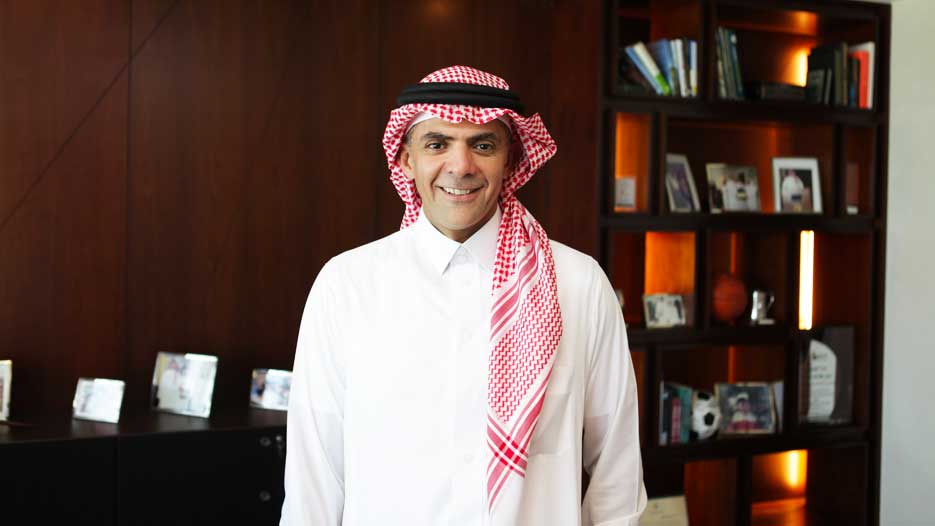
You are the leading company in the healthcare sector in Saudi Arabia. What is the outlook for the healthcare sector in general?
We at Nazer have decided to position ourselves as the leading healthcare company in Saudi Arabia for a variety of reasons, among which is that the healthcare sector in Saudi is probably one of the most promising sectors in the economy. There is a significant gap in terms of supply, both in terms of inpatient and outpatient services, and across the entire spectrum of healthcare services, either provided for by the government or the private sector. We believe that a significant investment is going to flow into the healthcare sector over the next few years. We want to be right in the middle of that.
We have been involved in the health sector for over 25 years. We understand the regulators, the thinking, and the strategy that the country must follow. If you look at some of the international indicators, whether it is the number of beds per 10,000 patients or others, we are below the standards. The government has embarked on significantly increasing investment in the infrastructure of the healthcare sector. However, it will take a few years for those facilities and hospitals to be built, completed, and operated.
There are many strategic challenges facing the government. One of those is the decision that must be made by the government regarding to what extent the government wants to be the ultimate provider of healthcare services versus opening the door for a larger participation by the private sector. Today, the Ministry of Health offers roughly 60% of the services, the other Ministries such as Defence and Interior, offer 20%. The private sector offers the remaining 20%.
Today, the Ministry of Health offers roughly 60% of the services, the other Ministries such as Defence and Interior, offer 20%. The private sector offers the remaining 20%.
We believe that at the pace that the country is growing and the pace that the services are required, the government cannot be the ultimate operator and provider of these services. At some point and we believe that it should be sooner rather than later, the government should move quickly towards being a regulator, rather than an operator. It should allow the private sector to both purchase the government assets and become the real operator and provider of those healthcare services within very strict guidelines of medically related outcomes, rather than financial outcomes. Those strategic decisions have to be made – to have a very clear direction for policy making and for the private sector to start planning for this because it is not going to be an easy road. It is something that we believe must happen and fairly quickly.
What would you identify as the three most important reforms that need to take place in the healthcare sector?
Liberalisation and provision of medical care, both for inpatient and outpatient services. We believe the insurance industry should be liberated to allow insurance companies, as in the rest of the world, to build and operate hospitals and clinics, and to also open the door for foreign investment in the infrastructure of healthcare facilities.
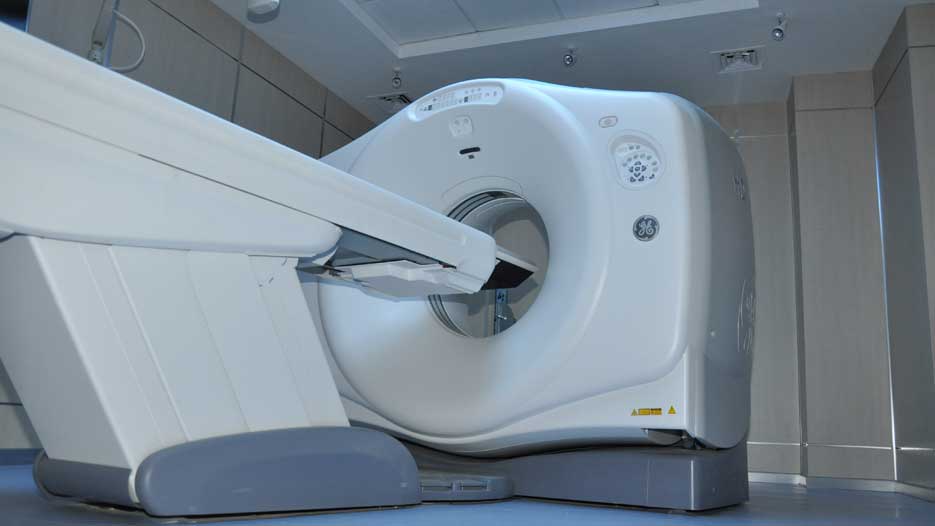
Isn’t that something that the government is doing already?
Today, foreign companies are not allowed to invest in outpatient clinics. Also, the insurance companies are not allowed to invest in hospitals or clinics. Contrary to what happens in the rest of the world, Saudi Arabia is still not allowing those investments. We see signs that this will change, but we, as the private sector, would like to see it change quickly.
What is the overall quality of healthcare in Saudi Arabia?
Healthcare in Saudi, in general, is at a good level. It is probably the best healthcare system in the Middle East, but I wouldn’t categorise it as amongst the top ten in the world. I think there is a lot of issues, from an operational point of view, that the government must focus on.
Today, healthcare is provided by the public sector as a cost based service, i.e. “how do I minimise the costs while providing these services?” In the private sector, the question is rather “how do I maximise revenue based on the services we provide?”
It is probably the best healthcare system in the Middle East.
Neither side is looking at the medical outcomes, nor at generating the KPIs required to look at what actually happens to the patients during an episode and what is the quality of life that emerges after the patient goes through these services; that is not an indicator that we see in the private or the public sector. That is where I think you will see a significant change in the way we approach healthcare in Saudi Arabia through regulation.
Can you present the group and your activities? How are you trying to help Saudi Arabia improve?
Today, Nazer is involved in four areas of healthcare. We are the largest shareholder in a health insurance company called Bupa Arabia. This company is the largest health insurer in Saudi Arabia. It is a joint venture with a British company called Bupa. We are involved in medical equipment supply and logistics. We undertake most of the equipment design, installation, management, and also the training of staff for particular hospitals. Thus, we represent a significant amount of either number one or number two brands in the world to distribute their products in the kingdom. The third business is the supply chain for operating kidney dialysis clinics, as well as the supply chain for the largest kidney dialysis operators in Saudi Arabia.
The fourth business that we are launching this year is an outpatient clinic network in Jeddah, and then rolling out across the entire Middle East, where the focus will be on medical outcome.
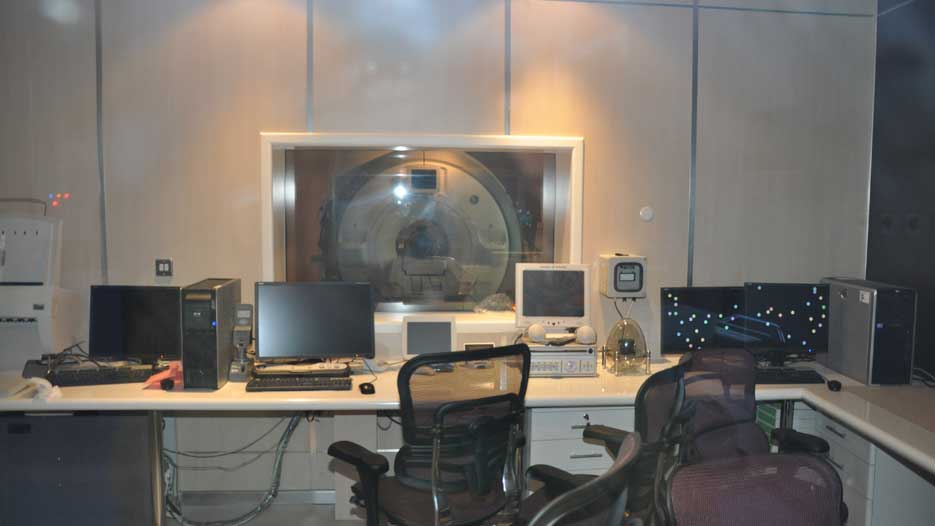
How do you identify the market opportunities?
Without going into details of where we are making money, in general, all of the startups in healthcare, like in any other sector, require a few years of understanding the dynamics of the industry before they start making any money. The oldest of these companies is the insurance business, as well as the medical equipment business; they have been around for roughly 20 years, and therefore they are the ones that are generating the significant profits for the group.
We are reinvesting roughly 90% of the profits of the group into additional services. Historically, Nazer has always been a start-up business; we are all about idea generation and creation and rolling out new businesses from scratch. In our history, we have generated roughly 12 to 13 companies from scratch that have grown over time. That is our focus and what we want to do: to reinvest in new concepts, potentially with international partners.
What is your personal vision of the transformation of Saudi Arabia in the healthcare sector?
We have a list of about 20 policy decisions that need to be made in order to unlock the bottlenecks in the healthcare services in Saudi Arabia, whether it is in disease management, IT, supply, medical outcome, etc. The issue for the medical sector in Saudi Arabia is not about just one decision or action, it is a collection of policies that all relate to potentially positioning Saudi Arabia as the best healthcare market, not only in the Middle East, but perhaps raising its standards to become one of the top 20 in the world.
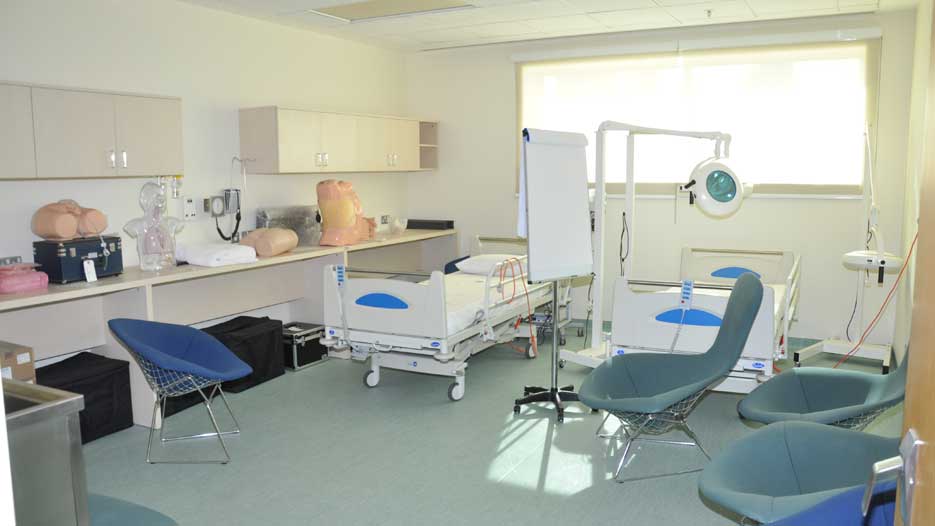
There is a global shortage facing the whole world, and particularly Saudi Arabia because of the level of investment that the government has undertaken. It is a shortage of doctors and nurses. Thus, we face significant challenges, but with a growing population and a young population, there is a potential for enrolling thousands of young Saudis into medical and nursing schools, which the country needs, as we cannot rely on foreign importation of these skills.
Saudi Arabia’s citizens are among the highest per capita consumers of medication with almost US$ 52. What is being done in preventive healthcare?
There is a real problem and there are two ways you can look at it; one is that it is a lifestyle issue, and the second is that it is a matter of managing the supply chain and the amount of medication that is being dispensed and used for the patients. I believe, and the Ministry of Health will agree, that there is a tremendous amount of waste in the supply chain. A lot of the medications either expire or are dispensed but unutilised because, until today, the government, and most of its hospitals, will dispense the full pack or full dose for a patient that may not need the entire package. The Ministry of Health has been leading a change in this, but has not yet penetrated all of its hospitals, by building or purchasing robotic systems and looking at ways of dispensing only what is required by the patient i.e. using unit dosage rather than a full pack of medicine.
The bigger issue, in my opinion, has to do with lifestyle. Our population has a high level of obesity and a high percentage of chronic diseases.
The bigger issue, in my opinion, has to do with lifestyle. Our population has a high level of obesity and a high percentage of chronic diseases. I think that predominantly relates to diet and exercise. The penetration of sports in schools is very low. The active participation of the population in sports and who follow a healthy diet is very small. The society must work on that early on, with children in schools, where you can generate positive habits and attention to health as a way of life, rather than resorting to medication and seeing a doctor. That is where Ministries like the General Presidency of Youth Wealth Fare, the Ministry of Health, as well as the Ministry of Education need to have a unified strategy to address these issues, rather than wait for an expenses bill that is going to grow significantly over time.
Is this something that can really be tackled?
Absolutely. My volunteer work on the Saudi Olympic Committee is targeting exactly that. We are in close contact with the Ministry of Education and we are going to establish contact with the Ministry of Health to come up with ways of addressing all of these issues. We are still in the very early stages of coordination because of the new cabinet, but in my opinion, it is central to the strategy of the Olympic Committee and we are going to need the support of both the Ministry of Health and the Ministry of Education.
From our standpoint, we want to increase the base of potential athletes that can compete at a very high level in international events. For us to do that, we have to sell the story to both of those Ministries and show them that it will have significant benefits for them as well. We have a way to maximise the benefit for all parties involved.
Are sports at girls’ school still prohibited?
No, it is no longer prohibited. I think penetration is now beginning to happen, and over time, just as in boys’ schools, we are beginning to see lots of new sports being introduced at a very young age in schools around the country. I get video clips every day from schools all over the country showing the introduction of sports, whether it is basketball, volleyball, karate, judo, etc. These are the kinds of sports that were never practised in schools before; the focus has always been on football.
You are a member of one of the leading business families in Saudi Arabia. In your opinion what should be done in order to improve the business environment and to make it more investment friendly?
In general, the situation is not that bad. For Saudis, it seems easy to do business in Saudi Arabia. It is more about the opportunity to do more within this economy. We cannot, as a country, continue to rely on oil as the major source of income. We are still very vulnerable to oil price fluctuations, which we have no control over directly. We can somehow control volume, but Saudi Arabia has already announced that we are not going to reduce production. We really have to look at ways of how to introduce new sectors to the economy. We have to look up ways to open up sectors that have traditionally been closed to the market. Furthermore, we have to repatriate a lot of the wealth that belongs to Saudi families and businesses that reside outside of the country. We need to look at how to invest this money and create jobs for the growth of our economy.
When we sat down with Mr. Abdulrahman Al Zamil, he mentioned that during the reign of King Faisal the government set up industrial funds that were supporting local businessmen. However, these days, they create sovereign wealth funds and Saudi money is being invested in Europe and into global equities.
The industrial funds have done extremely well supporting Saudi manufacturing. Saudi businesses have created a significant amount of wealth. I would tell you that if you asked every businessman, they would agree that the return on investment in Saudi Arabia has always been significantly higher than anywhere else in the world. The real wealth creation and opportunities have been created here. The wealth that has been invested by Saudis abroad is about capital preservation. We need to unleash the private sector, we need to open up through regulations, offering opportunities for the private sector to invest, and I am very confident that the majority of them will reinvest in the country.
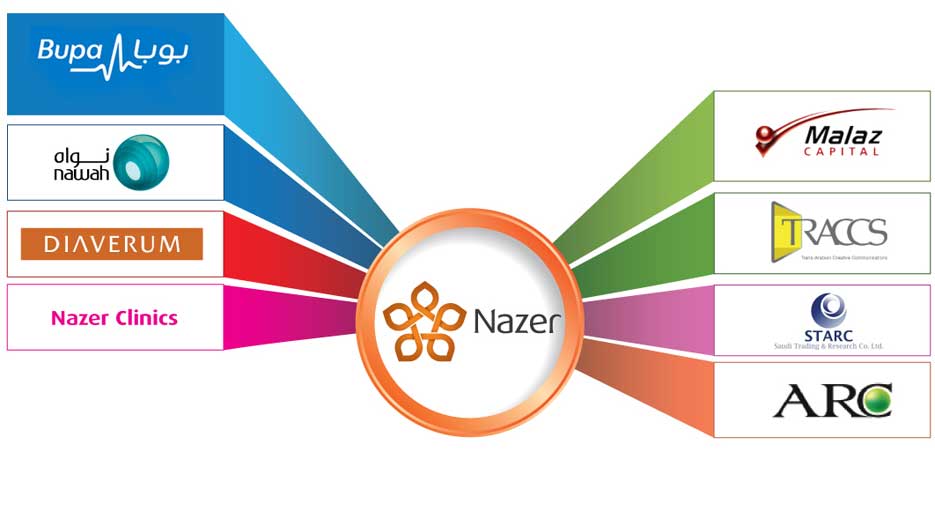
Are there limited opportunities?
We don’t have limited opportunities as such, but I think that we could have a lot more across the board. Slowly, the government should remove itself from being the provider of services and become the regulator. If Saudi decides to open up the healthcare sector and sell its assets to the private sector and become a regulator, I can guarantee that there will be billions of Saudi riyals being brought in to invest in Saudi Arabia.
Is there no private healthcare sector at all?
There is. Private healthcare represents 20% of the market, but I’m saying that it should be 80%.
How do the two compare in terms of quality? Are people seeking private versus public services?
The average Saudi citizen today would want a health insurance plan and would want to go to a private hospital. There are centres of excellence that belong to the National Guard. King Faisal Speciality Hospital is another example. Moreover, the Ministry of Defence also has some fantastic hospitals.
However, those are limited in number and they are not spread all over the country, so those who don’t have access to these hospitals would prefer to go to the private sector hospitals, as opposed to the average Ministry of Health hospital. This is as evidenced by the desire of the general public to have private health insurance plans so that they can avoid the waiting times and, in their minds, seek better health care quality.
Bupa is currently the largest health insurance company in Saudi Arabia.
The market capitalisation is for all the insurance lines. In health, we are a single line insurer so we are the largest healthcare insurance company.
Can you tell us about the outlook for healthcare insurance in Saudi Arabia? What do you think your strategy should be with Bupa?
It is a very exciting sector. Bupa has a tremendous future. The market has been growing over 10%, in fact, closer to 20% for the last four to five years. Gross Written Premiums have increased, as well, and the quality of services has also improved over time. In the public market, the general Saudi population wants to be insured, which is a reflection of how well the sector is performing. We are very excited about the prospects. Today, there are roughly ten million expatriates and Saudis who work in the private sector that are being insured. We believe that if the government changes the regulation and insures the Saudis who are in the public sector, that will more than double the size of the current market. The prospects are excellent. We are well positioned as the market leader to take advantage of any expansion in the sector.
There are 33 insurance companies active in the market, what is the outlook for the sector?
It is a problem. There are many insurance companies that faced severe penalties by the regulators, whether by the Capital Markets Authority or SAMA. Some have been delisted and some are facing issues of dipping below solvency. However, I think from a regulatory point of view, this is a heavily regulated market; SAMA, in particular, has put in very strict rules to protect the consumer, as well as protect the market. They are not going to allow insurance companies to operate in the way that a lot of them had been operating. Unless they revamp their management, capital structure, and do whatever is needed to regain the confidence of the consumer, I don’t think that SAMA will allow them to continue doing business. There might be opportunities for cooperation, but it may need the regulators to push those companies to consolidate amongst themselves.
As the market leader, would you be looking into potential take-overs?
Well, if we did, we wouldn’t be talking about it because we have to have public announcements regarding this. We always have the door open for anything and everything. We will continue to evaluate; so far we haven’t seen anything that we would like to invest in, but we never shut the door to any opportunity.
You mentioned, “There is no clear vision where the economy is headed, unless somebody steps forward and takes action Saudi Arabia will go from being a very rich country to a very poor country.” Can you elaborate on this?
I think from an economic standpoint, I would like to see a clear vision about what we are trying to accomplish and by when. In other words, we are in 2015, can we say that by 2030, we are going to be amongst the top ten economies in the world?
That is a very clear, measurable goal with a very clear deadline. If we are going to accomplish that, a lot of economists can look into the economy and see whether our organic growth, and the rate that we have maintained, will take us towards that goal or not. I suspect it will not, and therefore, we must ask what we can do as a country in order to unleash the potential of our economy and to reach the top target. From there will follow many regulations and incentives that will drive the economy, the private sector, investment, employment etc. as all of these things are very well interlinked. Without that definition or clarity in mind, my fear today is that every Ministry is speaking of its own plan, activities, and budget, and that may or may not lead us to where we ultimately want to be as a country. I think this is a big risk that we cannot afford to take.

Do you feel that the country lacks a strategy?
I don’t think we have a clear strategy. The intention is to invest in infrastructure and improve services, but these are intentions that may not transform into actions and may not yield outcomes. I think you always start out with a vision, and then you create a strategy that will lead you to that vision. Each part of the government works towards the implementation of that strategy and towards the achievement of that vision. Their vision needs to be clear, precise, and measureable, and it must be communicated to the entire population. That way we can hold the officials accountable for the delivery of their portion of that strategy.
How feasible is it to even come up with the vision if the society or system has historically deeply rooted bureaucracy?
It is probably going to be very difficult, but I don’t think it’s impossible. My point is that unless you do it, you are not going to be growing at the maximum potential of this economy. You have to decide whether you are happy with the current rate of growth and with being vulnerable to oil prices for the next 50 years, or if you want to take an aggressive action. If you decide you do want to be aggressive and you do want to be committed to a particular outcome, then you have to evaluate whether your current infrastructure and islands of efficiency can take you there, or perhaps you need to create an economy of cooperation across the various elements of government versus having each one to their own and relying on each one to develop or not.
They have tried that with SAGIA, which I believe actually added another layer of bureaucracy.
Yes, there have been small attempts towards those goals. I think, right now with the change of the new government, there are a lot of new business people in the government. The average age of government officials has dropped significantly, so I am personally very optimistic that the level of understanding has increased significantly. People who know how to deliver outcomes and results are coming into our government and helping us manage our way through.